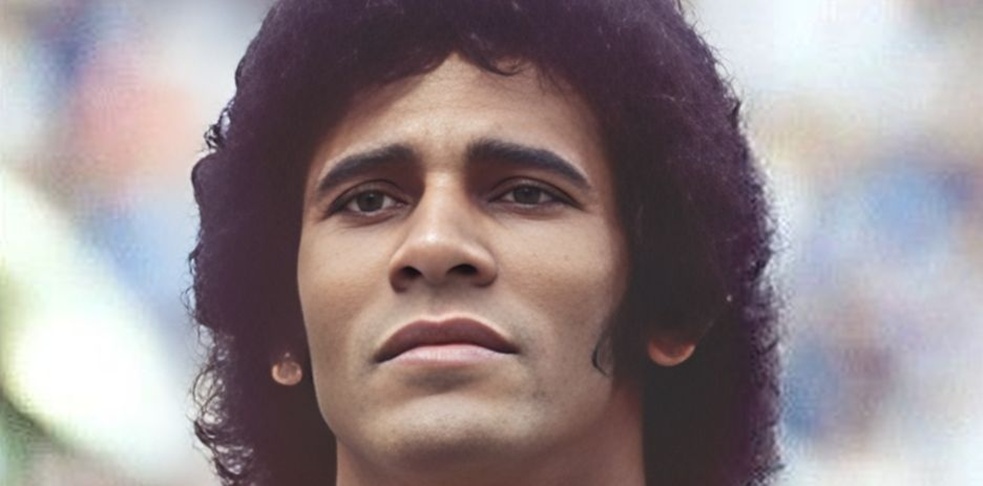Valdomiro Vaz Franco, known simply as Valdomiro, is a name that resonates with the golden era of Brazilian football, a period when flair, grit, and sheer determination combined to create legends on the pitch. Born on 17 February 1946 in Brazil, Valdomiro’s journey from modest beginnings to international acclaim is a tale of perseverance, skill, and an uncanny knack for finding the net when it mattered most.
PART ONE
Valdomiro began his professional journey in 1965 with Comerciário, a club competing in the Campeonato Catarinense. It was at Comerciário that he first demonstrated the talent and composure that would become his trademarks. In just three seasons, he helped the team secure the 1968 Campeonato Catarinense title, a triumph that marked the emergence of a forward who could turn matches on their head with a combination of intelligent movement and clinical finishing. Furthermore, this early success provided the platform for Valdomiro to move to Perdigão in 1968, though his stay was brief, yet impactful enough to catch the eye of larger clubs in Brazil.
Consequently, the most defining chapter of Valdomiro’s career began later that same year when he signed with Internacional, a club that would become synonymous with his name. At Internacional, Valdomiro’s star truly shone, and it wasn’t long before he became a key figure in the team’s attacking line-up. Over the course of more than a decade—from 1968 to 1979—he made a profound impact, not only through goals but also by his ability to inspire teammates and influence the outcome of high-stakes matches.
Undoubtedly, his contribution was instrumental in Internacional’s dominance in the Campeonato Gaúcho during this period. From 1969 to 1976, and again in 1978 and 1982, the club lifted the state championship trophy repeatedly, with Valdomiro often at the heart of decisive moments.
In addition to his domestic exploits, Valdomiro’s international career with Brazil further cemented his reputation. Between 1973 and 1977, he earned 17 caps and scored five goals for the Seleção, representing his nation with poise on football’s grandest stages. Most notably, he participated in the 1974 FIFA World Cup in West Germany, appearing in six games and netting one goal. While Brazil did not retain the trophy, Valdomiro’s performances showcased his capacity to compete at the highest level, blending technical skill with an intuitive understanding of space and timing—qualities that made him a nightmare for defenders.
Building upon his international recognition, Valdomiro’s impact at Internacional reached its pinnacle during the 1976 Campeonato Brasileiro Série A final against Corinthians. In a match that demanded both skill and composure, Valdomiro scored one of the goals that secured victory for his side. Moreover, his overall performance earned him the man of the match award, highlighting not just his scoring ability but also his influence across the pitch. This moment encapsulated the essence of Valdomiro as a player: capable of decisive action, yet willing to contribute to the broader rhythm and strategy of his team.
Correspondingly, his individual accolades further underscore the significance of his career. In 1976, Valdomiro was awarded the Bola de Prata, a recognition bestowed upon the best players in Brazil’s top flight. This honor was not merely a testament to his goals and assists but reflected the complete package of consistency, work ethic, and footballing intelligence that defined him as one of his generation’s standout forwards.
PART TWO
Valdomiro’s club career also included a brief but notable spell abroad with Millionarios in Colombia between 1980 and 1981. This move demonstrated his versatility and adaptability, as he adjusted to a new footballing culture and continued to find the net, proving that his talents transcended borders. Nevertheless, the pull of home proved too strong, and he returned to Internacional in 1982 for a final season, closing the circle on a remarkable journey with the club where he had spent the bulk of his career.
Moreover, when evaluating Valdomiro’s legacy, it is impossible to overlook his role in Internacional’s three Campeonato Brasileiro Série A titles in 1975, 1976, and 1979. These triumphs were more than just trophies; they were milestones in Brazilian football history, with Valdomiro consistently contributing in crucial games and providing a blend of experience and instinct that few could match. In particular, the 1976 title was emblematic of his peak years, combining individual brilliance with team cohesion, and ensuring that his name would be forever etched in the annals of the club.
Despite the passage of time, Valdomiro’s influence remains evident in discussions about Brazilian forwards of the 1970s. Not only did he possess technical excellence and a clinical eye for goal, but his intelligence on the field allowed him to read matches in a way that often put him one step ahead of opponents. Likewise, his leadership qualities—quiet yet firm—helped shape teams that were more than the sum of their parts, contributing to a culture of winning that endured long after he hung up his boots.
It is also worth noting that Valdomiro’s career reflects a model of loyalty and dedication that is increasingly rare in modern football. Whereas many players today shift clubs frequently in search of financial incentives, Valdomiro’s long-term commitment to Internacional demonstrates a profound connection to his team and community. Accordingly, this bond amplified his performances on the field, as his attachment to the club inspired both teammates and fans alike, forging an enduring legacy that transcends statistics.
While Valdomiro may not have achieved the global superstardom of contemporaries like Pelé or Rivellino, his contribution was equally vital in maintaining Brazil’s footballing identity—creative, opportunistic, and relentlessly attacking. His ability to shine in domestic competitions while simultaneously representing the national team illustrates a rare balance between individual skill and collective responsibility, an equilibrium that defines the careers of truly great players.
